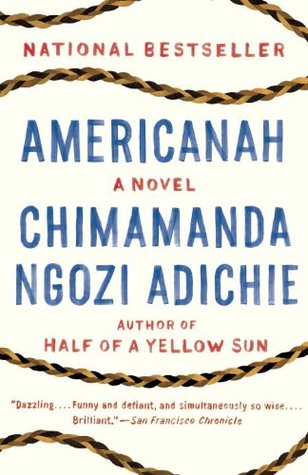 Chimamanda Ngozi Adichie, The Arrangements and Other Stories
Chimamanda Ngozi Adichie, The Arrangements and Other Stories
This short story collection is a selection by a French publisher to present 5 pieces from Chimamanda Ngozi Adichie with French on the right page and English on the left, a popular method for advanced learners to start into English literature without being too intimidated. (I could write endlessly about the weird pedagogic methods of teaching foreign languages in France where most people end up too ashamed and traumatized to utter a single word in front of the occasional American tourist. I guess you didn’t come for such a rant. Ahem, I step down from my soapbox).
Because of this rather arbitrary choice, there is no unity or thread to find among those stories. The first one is a story first published in the New York Times during the 2016 campaign. Adichie chose to write a day in the life of Melania Trump à la Mrs. Dalloway. Like Mrs. Dalloway, Melania is going to have a party on the evening and we follow her thoughts and interactions with Donald, Ivanka and other people in a stream-of-consciousness fashion.
Now, I sure don’t want to waste my time following every interaction of the real POTUS and FLOTUS, but their fictional counterparts’ day is fascinating, all the more as Adichie wrote it before they were elected. It is rather mind-blowing to read this story now that he’s been elected and that we know how the future turned out. I don’t know about you, but I can’t for the life of me remember what Mr. Dalloway is supposed to do all day. But I bet he was not going to get impeached or start a war with a nuclear country.
The other stories are very different and centered on Nigerian women, with themes intersecting the ones I read in Americanah: the marriage arrangements of a rich Nigerian man who has a wife in the U.S. and a mistress in Lagos (in Imitation), the exile of a young Nigerian girl as she arrives in the U.S., the mutual misunderstanding of the emigrants when they communicate with their family and friends in the home country. The American Embassy is a real tear-jerker and I need to give an advance warning because it deals with the death of a child (I was not warned and it hit me like a ton of bricks). I was even angry that Adichie would use this plot for a short story, I expected more of her.
Despite my small reservation on this last story, I loved this collection and it confirms that I need to read other novels and short stories by this now-favorite author. (I read it in September and I’m sorry it took me so long to review!)
+++
ETA Feb. 6, 2020: The 4 stories beside The Arrangements are actually taken from the collection “The thing arount your neck” (2009)



 I could start with “I should have read this book a long time ago”, or “I’m like the last person on the blog world to post about this book”, or “why oh why did this book linger for so long on my nightstand?”… and I could tell you a lot of excuses. The truth is, I bought this book first when it came out in German, because Charlotte Otter is a delightful person whose blog I have been reading for ages and because I like crime novels with a deep sense of setting.
I could start with “I should have read this book a long time ago”, or “I’m like the last person on the blog world to post about this book”, or “why oh why did this book linger for so long on my nightstand?”… and I could tell you a lot of excuses. The truth is, I bought this book first when it came out in German, because Charlotte Otter is a delightful person whose blog I have been reading for ages and because I like crime novels with a deep sense of setting. It’s pretty normal for challenges to be challenging, right? If you were 100% sure to find the book you expected when taking a reading challenge, that would soon be a bore, right? Global Voices Challenge defied me (at least, I took it personally) to try a book from a country I never read anything about, in honor of UNESCO World Book Day today. I entrusted my fate to chance, and chance gave me a book from Togo. A challenging book I won’t forget anytime soon, dealing with mass murder and its consequences.
It’s pretty normal for challenges to be challenging, right? If you were 100% sure to find the book you expected when taking a reading challenge, that would soon be a bore, right? Global Voices Challenge defied me (at least, I took it personally) to try a book from a country I never read anything about, in honor of UNESCO World Book Day today. I entrusted my fate to chance, and chance gave me a book from Togo. A challenging book I won’t forget anytime soon, dealing with mass murder and its consequences.